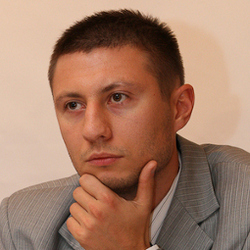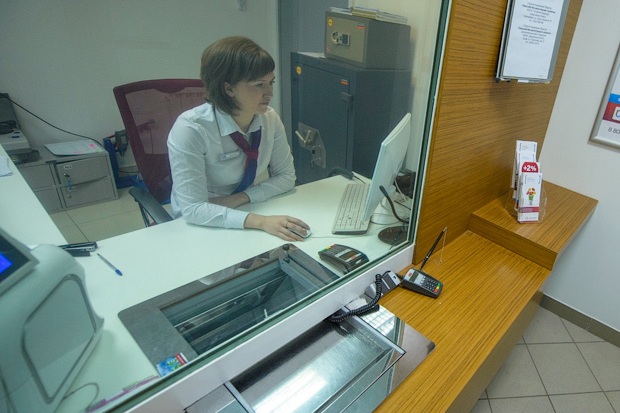Fitch sees effective fight against capital outflow abroad in bank cleansing
Experts assure that mass revocation of licences of credit organisations will continue and their number will reduce to 300, it is still a lot
Fitch Ratings international rating agency prepared its evaluation of the banking market's state in Russia. Analysts presented it at the annual conference. In general, the experts did not see anything bad in market cleansing but, on the contrary, found advantages where nobody had ever seen them. In Fitch's opinion, the mass revocation of licences led to a serious reduction of capital outflow from the country. This is why the agency's analysts are sure that cleansing on the market will continue and bring to a reduction of the number of players to 300. But in general, it is a lot for Russia. Realnoe Vremya talked to other experts of the financial sector and knew that not everybody agreed with the international analysts' forecasts.
Fewer banks – less capital outflow from the country?
One of the first and probably the most unexpected conclusions that were made on 26 September at the annual conference of Fitch Ratings was that it became possible to considerably reduce the capital outflow from the country thanks to cleansing the sector. Delivering a speech at the conference, Aleksandr Danilov, senior director on Financial Organisations at Fitch Ratings, noted: ''If not the cleansing the sector, the capital outflow would have been higher in the 2014-2015 crisis like in 2008 or more ($50bn)''.
According to Fitch's research, licence revocation correlates with capital outflow. Money was taken from the country most actively in 2008. In addition, the Central Bank did nor revoke licences actively. The number of revocations doubled in 2009, but the volume of the refugee capital fell at the same time. The number of licence revocations reduced until 2012 while the outflow increased. The tendency reversed since 2012. The outflow almost stopped by 2016 (now it is the peak in the financial market). However, other experts did not agree with the Fitch analysts' such glowing conclusions.
 ''There is a difference between correlation and causal loop. And here we need to find out whether the market cleansing that is taking place now and the reduction of capital outflow have a causal link,'' thinks Pavel Samiev, managing director of the National Rating Agency (NRA). ''Of course, it has certain reasons. In its widest sense, the capital outflow has different reasons. If we are talking about those not quite legal mechanisms that were used by 'schematic' banks whose licence was revoked, it needs to correlate. The number of banks that syphon money off is reducing. This capital outflow is not legal, they are hidden transactions whose goal was to divert money. There is a causal loop here, of course. But I think that licence revocation is not the only factor because there are many other measures that were taken to reduce the capital outflow. And it doesn't refer to the banking market only. In this sense, the conclusion is correct: market cleansing's goal was to reduce the outflow.''
''There is a difference between correlation and causal loop. And here we need to find out whether the market cleansing that is taking place now and the reduction of capital outflow have a causal link,'' thinks Pavel Samiev, managing director of the National Rating Agency (NRA). ''Of course, it has certain reasons. In its widest sense, the capital outflow has different reasons. If we are talking about those not quite legal mechanisms that were used by 'schematic' banks whose licence was revoked, it needs to correlate. The number of banks that syphon money off is reducing. This capital outflow is not legal, they are hidden transactions whose goal was to divert money. There is a causal loop here, of course. But I think that licence revocation is not the only factor because there are many other measures that were taken to reduce the capital outflow. And it doesn't refer to the banking market only. In this sense, the conclusion is correct: market cleansing's goal was to reduce the outflow.''
Maksim Osadchy, director of BKF's Analytical Department, is more categorical: ''I think it is an accidental correlation because the majority of the banks whose licence was revoked are small banks. It is difficult to pass a big transit flow through them. Crisis the key factor of the capital outflow. A big capital outflow takes place during a crisis. Indeed, capital outflow's peaks were in the 4 th quarter in 2008 ($132,1bn) and 4th quarter in 2014 ($75,8bn).''
300 banks to remain in Russia
Fitch's forecast is not promising for financial market workers: its cleansing will go on. In the analysts' opinion, no more than 300 banks are going to remain in Russia in the short run. In addition, 2/3 of them will have a basic licence from 1 January 2018. There will be no more than 100 credit organisations with a universal licence.
 Other experts don't exclude such a scenario but warn: ''On the one hand, we see that the Central Bank has considerably slowed licence revocation down. There was one revocation last week, two revocations – in September, only six – in August. On the other hand, if the existing tendencies stay, yes, 300 banks will remain. The question is when,'' Osadchy comments.
Other experts don't exclude such a scenario but warn: ''On the one hand, we see that the Central Bank has considerably slowed licence revocation down. There was one revocation last week, two revocations – in September, only six – in August. On the other hand, if the existing tendencies stay, yes, 300 banks will remain. The question is when,'' Osadchy comments.
''I think cleansing will continue, though the regulator has made different statements this year,'' Pavel Samiev agrees. ''It seems to me that cleansing has not finished yet. There won't be a big number of revocations of big banks' licences. We will hope that it won't happen because it can worsen the trust in the banking market more. But there are also banks that don't fit the requirements not only in risk management, capitalisation and financial stability but compliance requirements, observance of all the anti-income laundering rules. I think the market still has such banks. And this part of the market will need to be cleansed. In addition, there are several banks whose shareholders don't see any sense in continuing the activity, and their business is not profitable. Here they will not only switch to the basic licence but also leave the market and merge. So the market will be reducing. Yes, I agree with their evaluation that 300 banks or a bit more will remain (there can be more than 200 with the basic licence and about 100 – with the universal one).''
Russia needs 50 banks?
The needed number of banks in Russia is one of the most debated evaluations. According to Fitch, Russia can do with 50.
''The fact that Russia needs 50 banks is naïve rubbish, that is surprising for a rating agency of such a level,'' Maksim Osadchy says. ''First of all, the market must to define the number of business units. Secondly, there must be a network of regional banks in such a country as Russia. Regional banks are more flexible. They can make decisions faster and better. For instance, it is important that the bank's owner can cooperate with a big client. The service quality at the level of federal banks will be completely different. And we have many regions, not 50. In other words, there must a certain number of regional and a certain number of federal banks for a normal work of the system. And we will remind that the United States has 2,000 banks (we can't compare our economy, of course), Germany has about 1,300 banks.''

Pavel Samiev also agrees with these conclusions: ''The number of the banks that are enough for our economy is a philosophical question. What does 'enough' mean? There is not a rule that a certain number of banks are enough to the economy. If we look at the world practice, how different the number of banks in different countries is. There are countries where there are thousands of banks, there are countries that have hundreds, some countries have tens. The market needs to decide the optimal number of banks. The market has restrictions: regulative requirements, capital, the Central Bank's risk and reserve requirements. Then it is up to the market.''